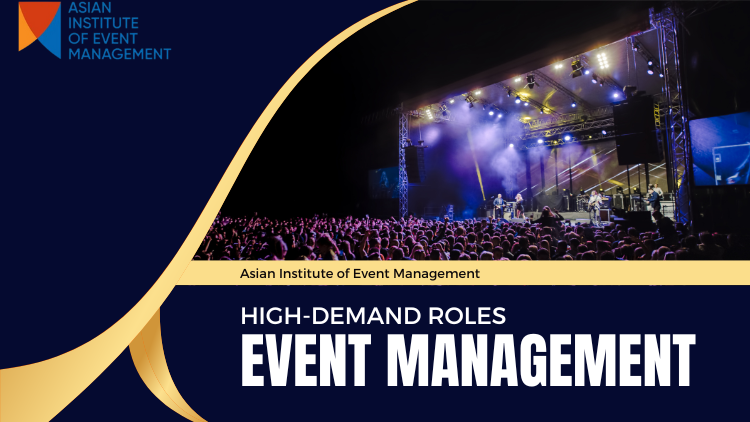
5 Common Misconceptions About Event Management Careers
May 31, 2024
You’ve heard so many things about a career in event management.
But which of them is true? And which ones are myths?
Understanding the truths from misconceptions will help you make the right choices, including:
- Whether a career in event management is right for you
- What paths should you choose
- What kind of lifestyle as an event manager can you expect
- And more…
To help you with that, here are five common misconceptions about event management careers:
1. It’s Only About Big Events
The skills matter more than the scale.
Whether you stage massive conferences, intimate weddings, or local fairs, each needs strategic vision, flawless execution, and guest-centric care.
If you obsess over event details from start to finish, any stage is yours.
Smaller events often have unique hurdles like limited budgets, requiring creative solutions to still wow attendees. Your versatility is the difference maker.
2. Anyone Can Do It
Sure, you can coordinate a backyard barbecue for friends. But next-level events demand niche abilities like stellar communication, sharp problem-solving, organizational brilliance, and grace under fire.
These experts aren’t born. They hone such skills over time through dedication.
For instance, effective communication is key for vendor negotiations, team coordination, and client expectations. Quick problem-solving rescues events when the unexpected happens.
3. Event Management is All About Party Planning
Many assume event pros primarily plan celebrations and social soirees. But the field spans far wider.
Corporate conferences, fundraisers, trade shows, and seminars require equal prowess.
While some events involve fun, success goes beyond aesthetics alone.
Meticulous planning, budget management, and logistics skills come first.
Each event type also requires a tailored approach.
Organizing a corporate summit demands understanding the company’s goals, speaker coordination, and technical setups.
Planning a charity gala involves donor outreach, sponsorship procurement, and engaging activities highlighting the cause. This diversity means versatility across areas is key.
4. You Don’t Need Formal Education
Some may thrive learning the ropes on the job. But most accelerate faster by building strong formal knowledge first.
Structured training through institutes and certifications equips you with specialized event competencies around operations, marketing, and financial oversight.
This education introduces best practices, emerging trends, and technologies to streamline success.
For instance, learning the latest event management software can drive efficiency.
Education also often includes internships or practical projects, which allow you to build real-world experience and professional connections. This combination primes you for the real job.
5. It’s a Glamorous Job
Between the buzzing venues and chic events, it can appear glitzy from the outside. But behind the scenes lie long hours, tight deadlines, and urgent issue resolution.
You'll shine if you have the resilience to power through stress while keeping creative vibrancy under pressure.
But know both sides of this coin.
A sudden rain plan adjustment or vendor delay means swift, smooth problem-solving behind the scenes — even as the event appears flawless to attendees.
Final Thoughts
If you’re planning to pursue a career in event management, you should approach it with the right understanding and expectations.
If you need help planning your career or want more insights, connect with experts at Asian Institute of Event Management.
RECENT POSTS
-

Navigating the Curriculum: Key Modules and Skills in an 11-Month Event Management Diploma
March 21, 2025
-

Maximizing Career Opportunities with an 11-Month Diploma in Event Management
February 20, 2025
-

Why Kolkata is Becoming India’s Event Management Hub
February 17, 2025
-

Top 5 High-Demand Roles in Event Management
February 12, 2025
-

What Elements Should Be Considered When Selecting the Best Event Management Institute?
January 6, 2025